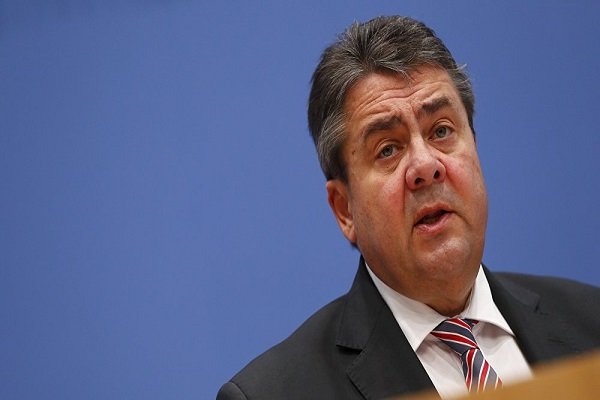Berlin, a member of the P5+1 group that reached the Iranian nuclear deal in 2015, called on the United States to refrain from withdrawing the agreement amid rumors of the possible US exit fueled by President Donald Trump's statements, reported Sputnik.
German Foreign Minister Sigmar Gabriel said that Berlin is sure that Iran abides by the nuclear deal, which is confirmed by the IAEA. He said that "we fear that signals coming from the US" suggest that US President Donald Trump will reject the Iranian nuclear deal.
Berlin is ready to increase pressure on Tehran using diplomatic means, adding that "we do not want to see this agreement damaged."
The German top diplomat said that the security situation may get worse if Washington withdraws from the Iranian nuclear deal, adding that it causes concerns.
Gabriel also said that the possible US move may backfire on the settlement of the North Korean issue as Pyongyang is unlikely to agree to a deal if a similar one with Tehran fails.
Germany, France and Britain urge the US to refrain from exiting the Iranian nuclear deal, Gabriel said.
The statement comes amid rumors of the possible US withdrawal from the Iranian nuclear deal fueled by Trump's controversial remark during a dinner for military commanders attended by reporters. Trump puzzled the White House media pool on Thursday evening, referring to the time during which he posed for a photo with the country’s military leaders as "the calm before the storm."
Trump's remark prompted media speculations, saying that the US is going to withdraw from the Iranian nuclear deal with The Washington Post reporting citing anonymous officials that Trump was expected to announce within a week that he would "decertify" the international nuclear deal with Iran because it was not in the US national interests.
On Saturday, Iran yet again defended the nuclear deal with the country's president saying that Donald Trump cannot change the fact that the agreement is "irreversible." The Kremlin said on Monday that the possible US withdrawal from the Iranian nuclear deal will have negative consequences. Earlier in the day, China also voiced strong support of the agreement.
The historic nuclear deal between the leading global nations, including the United States, Russia, France, Germany, China, the United Kingdom, and Iran was signed on July 14, 2015 after years of high-scale tension over the nuclear program of the Islamic Republic.
The Joint Comprehensive Plan of Action (JCPOA), commonly referred to as the Iran Nuclear Deal, was signed in July 2015 by Iran and the P5+1 group of nations comprised of the United States, Russia, China, France and the United Kingdom plus Germany after years of diplomatic work.
Donald Trump called the JCPOA, negotiated under President Barack Obama's watch "an embarrassment" to the United States during his speech to the UN General Assembly and has repeatedly criticized it during his presidential and election campaign.


























Your Comment